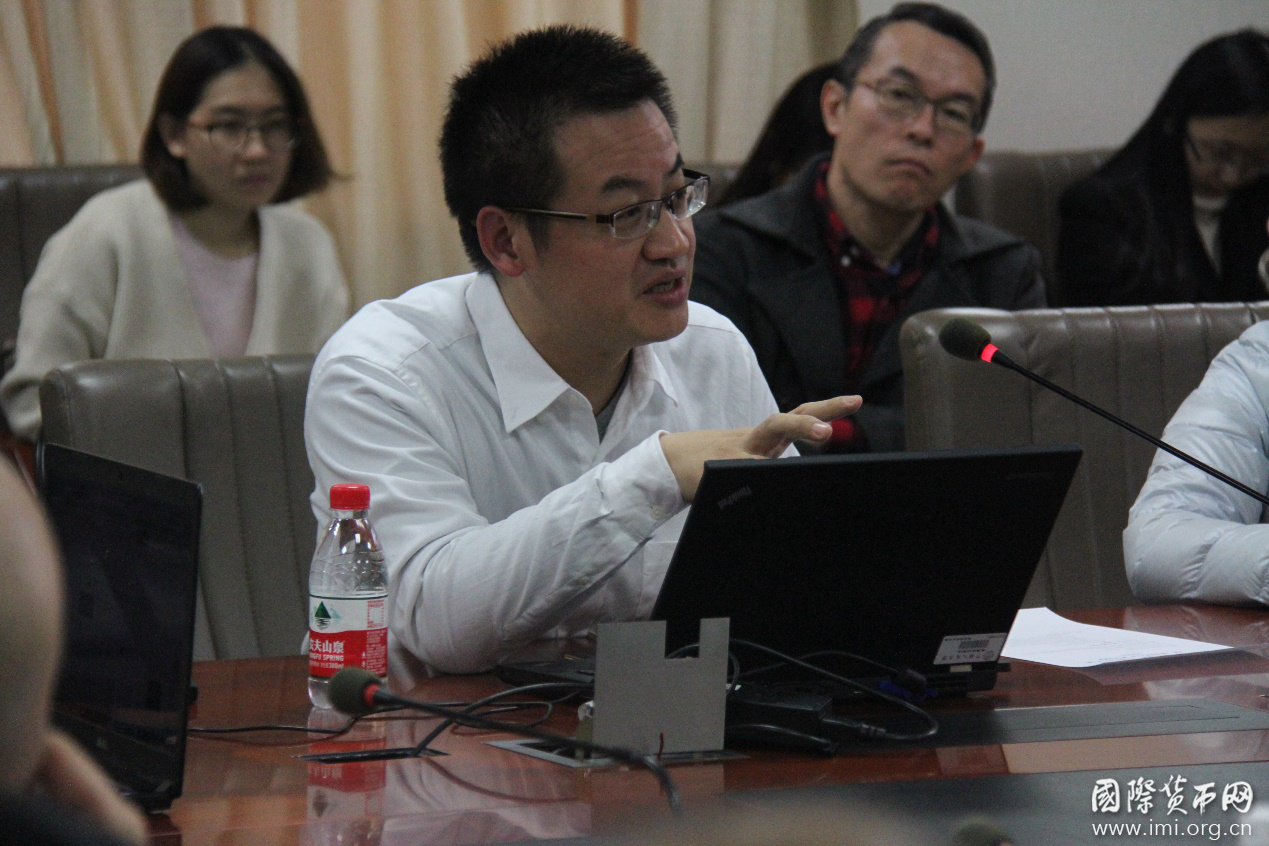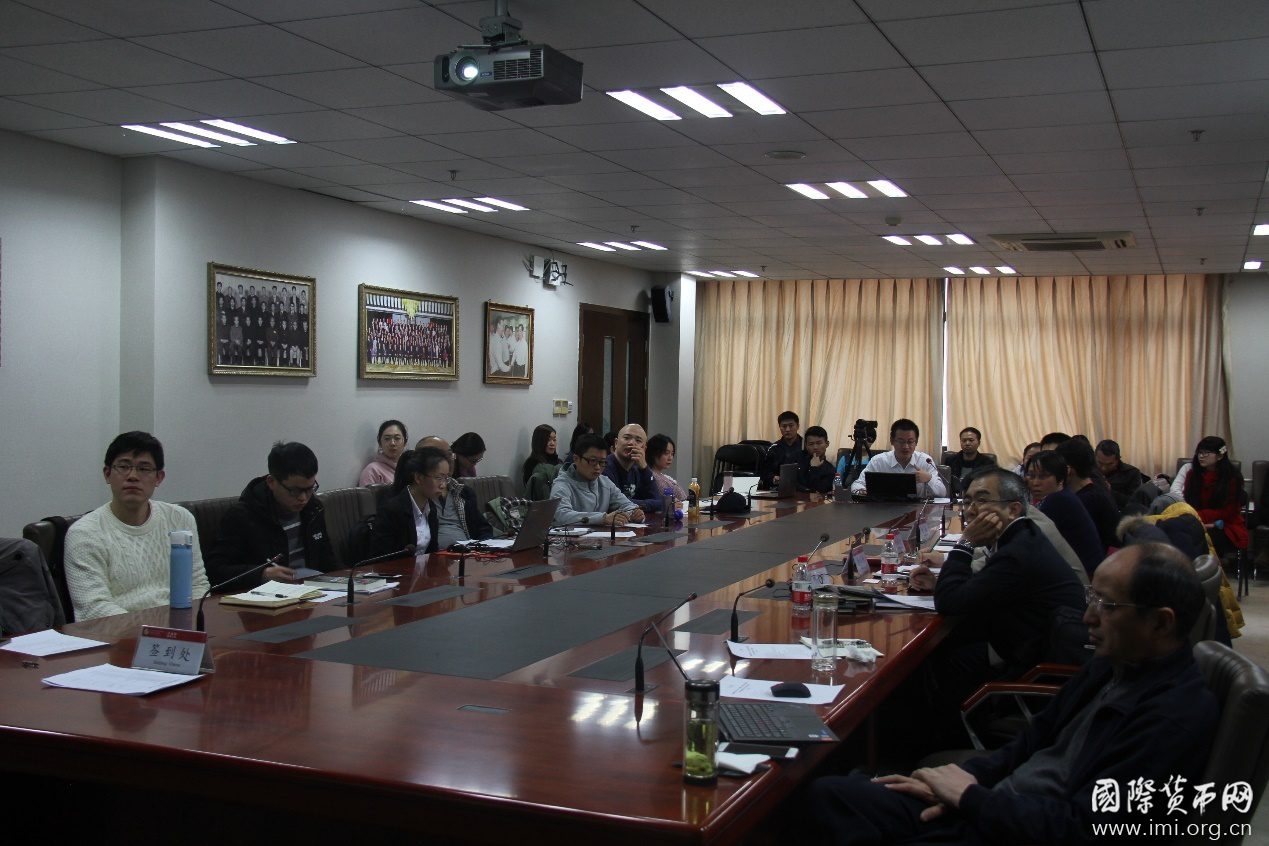Macro-Finance Salon (No. 75) Series of the 19th CPC National Congress (No. 2): Deleveraging from Financial Sector to Real Economy
2017-11-25 IMI Mr. Zhong talked about tightening of financial supervision, which was mentioned at the 19th CPC National Congress and elaborated on the connotation of financial deleveraging and its relationship with real economy. He explained how to deepen financial deleveraging, and analyzed the relationship among financial liberalization, financial reform and economic reform. Based on the analysis of the Fifth Financial Work Conference and the concept of "economic reform is more urgent than financial reform", which was emphasized at the Central Political Bureau Meeting held on July 24, he pointed out that financial deleveraging is not a summary of strengthening financial regulation. He stressed that “leverage” is a neutral word, not a negative one. Leverage itself is not bad, the problem is what the leverage is working on.
When it comes to the root cause of financial deleveraging, Mr. Zhong believes that it is the real economy. He pointed out that strengthening financial supervision is a key element of financial system reform. However, it is the contradiction in real economy growth that causes the rise in financial leverage since 2009 and capital flowing out from the real economy since 2015. The three rounds of fiscal stimulus since the 2008 financial crisis witnessed a marked monetary policy easing. In this context, on the one hand, real economy leverage has risen sharply and SOEs have increased the leverage ratio of non-financial enterprises. On the other hand, the climbing cost of capital and the declining return on investment together inevitably lead to the outflow of capital from the real economy. Talking about how to deepen financial deleveraging, Mr. Zhong said that financial sector leveraging and real economy leveraging are similar to two sides of a coin. He pointed out that first, the demand for a "steady growth" should not be emphasized strongly, and unnecessary fiscal stimulus should be reduced. China's economy is transforming from manufacturing-dominated to service-oriented, and in this process China will continue to figure out the bottom line of growth rate. He quoted form the Report that "China's economy has shifted from a period of rapid growth to a phase of high-quality growth", which serves as an example of readjusting the relationship between growth speed and growth quality. Second, private investment should be encouraged and soft budget constraints of SOEs should be relaxed. SOEs are the main beneficiaries of easy fiscal policy and easy monetary policy. If these soft budget constraints are not loosed, the highly regulated financial environment will only impact on private enterprises, so deleveraging of real economy and financial sector will both fail.
Mr. Zhong talked about tightening of financial supervision, which was mentioned at the 19th CPC National Congress and elaborated on the connotation of financial deleveraging and its relationship with real economy. He explained how to deepen financial deleveraging, and analyzed the relationship among financial liberalization, financial reform and economic reform. Based on the analysis of the Fifth Financial Work Conference and the concept of "economic reform is more urgent than financial reform", which was emphasized at the Central Political Bureau Meeting held on July 24, he pointed out that financial deleveraging is not a summary of strengthening financial regulation. He stressed that “leverage” is a neutral word, not a negative one. Leverage itself is not bad, the problem is what the leverage is working on.
When it comes to the root cause of financial deleveraging, Mr. Zhong believes that it is the real economy. He pointed out that strengthening financial supervision is a key element of financial system reform. However, it is the contradiction in real economy growth that causes the rise in financial leverage since 2009 and capital flowing out from the real economy since 2015. The three rounds of fiscal stimulus since the 2008 financial crisis witnessed a marked monetary policy easing. In this context, on the one hand, real economy leverage has risen sharply and SOEs have increased the leverage ratio of non-financial enterprises. On the other hand, the climbing cost of capital and the declining return on investment together inevitably lead to the outflow of capital from the real economy. Talking about how to deepen financial deleveraging, Mr. Zhong said that financial sector leveraging and real economy leveraging are similar to two sides of a coin. He pointed out that first, the demand for a "steady growth" should not be emphasized strongly, and unnecessary fiscal stimulus should be reduced. China's economy is transforming from manufacturing-dominated to service-oriented, and in this process China will continue to figure out the bottom line of growth rate. He quoted form the Report that "China's economy has shifted from a period of rapid growth to a phase of high-quality growth", which serves as an example of readjusting the relationship between growth speed and growth quality. Second, private investment should be encouraged and soft budget constraints of SOEs should be relaxed. SOEs are the main beneficiaries of easy fiscal policy and easy monetary policy. If these soft budget constraints are not loosed, the highly regulated financial environment will only impact on private enterprises, so deleveraging of real economy and financial sector will both fail.
 After the speech, Xiu Jing and Lin Nan, both IMI researchers, shared their views on the relationship between exchange rate and financial leverage and the structural separation of state-owned enterprises from private companies. Students of the "GinTong Global Talents Program" also raised questions about how deleveraging would be influenced by new regulations on asset management and the rate hike by the Federal Reserve. Mr. Zhong exchanged his ideas with the students on these issues.
After the speech, Xiu Jing and Lin Nan, both IMI researchers, shared their views on the relationship between exchange rate and financial leverage and the structural separation of state-owned enterprises from private companies. Students of the "GinTong Global Talents Program" also raised questions about how deleveraging would be influenced by new regulations on asset management and the rate hike by the Federal Reserve. Mr. Zhong exchanged his ideas with the students on these issues.
